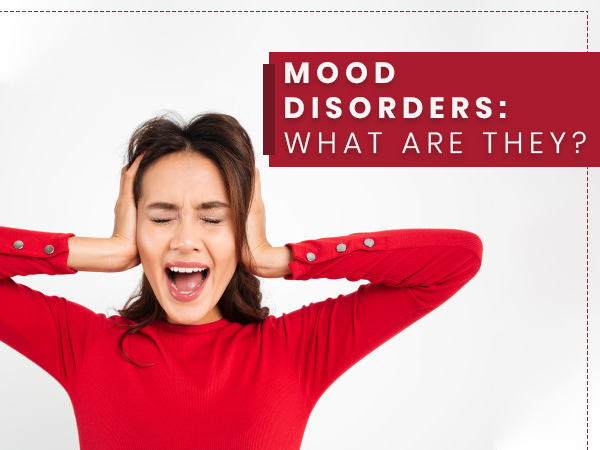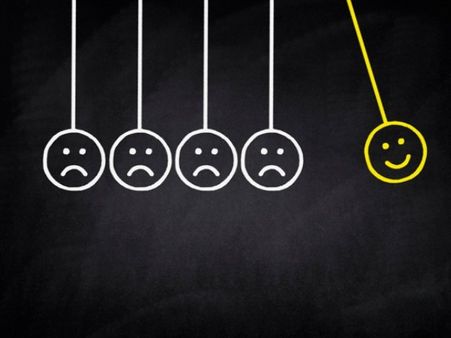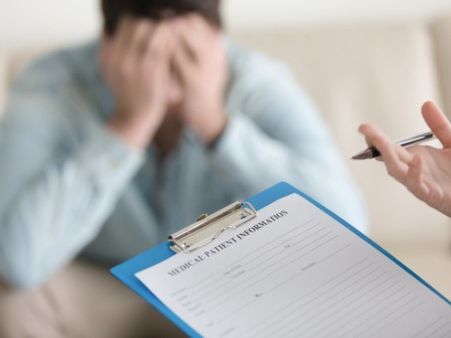Just In
- 7 hrs ago

- 7 hrs ago

- 11 hrs ago

- 17 hrs ago

Don't Miss
- Movies
 Bade Miyan Chote Miyan Box Office Collection Day 10 Prediction: Akshay’s Film To See Hike During 2nd Weekend
Bade Miyan Chote Miyan Box Office Collection Day 10 Prediction: Akshay’s Film To See Hike During 2nd Weekend - Sports
 Most Sixes in IPL 2024: Top 10 Players And Teams To Hit Most Sixes As Of April 20
Most Sixes in IPL 2024: Top 10 Players And Teams To Hit Most Sixes As Of April 20 - Finance
 2:1 Bonus Issue: IT Penny Stock Turned; 1,600 Shares Market Lot Size Revised To 4,800 Shares
2:1 Bonus Issue: IT Penny Stock Turned; 1,600 Shares Market Lot Size Revised To 4,800 Shares - News
 Chinese President Xi Jinping Orders Biggest Military Reorganisation Since 2015
Chinese President Xi Jinping Orders Biggest Military Reorganisation Since 2015 - Education
 Exam Pressure Does Not Exist; Studying Punctually is Crucial; Says Aditi, the PSEB 2024 Topper
Exam Pressure Does Not Exist; Studying Punctually is Crucial; Says Aditi, the PSEB 2024 Topper - Automobiles
 Suzuki Swift Hatchback Scores 4 Star Safety Rating At JNCAP – ADAS, New Engine & More
Suzuki Swift Hatchback Scores 4 Star Safety Rating At JNCAP – ADAS, New Engine & More - Technology
 Dell Introduces AI-Powered Laptops and Mobile Workstations for Enterprises in India
Dell Introduces AI-Powered Laptops and Mobile Workstations for Enterprises in India - Travel
 Journey From Delhi To Ooty: Top Transport Options And Attractions
Journey From Delhi To Ooty: Top Transport Options And Attractions
What Are Mood Disorders? Its Types, Causes, Risk Factors, Diagnosis And Treatment
Mood disorders are mental health disorders that are characterised by a serious change in mood that causes disruption to one's life. A mood disorder primarily affects the emotional state of a person, in which a person experiences long periods of extreme happiness, extreme sadness, or both [1].

A change of mood is normal, we all face it but if the condition or the state of change is present for several weeks or longer, it is time when one seeks medical attention. Studies point out that mood disorders may increase the risk of suicide [2].

Types Of Mood Disorders
Though many different subtypes are recognized, three major states of mood disorders exist: depressive, manic, and bipolar [3]. Some examples of mood disorders include are mentioned below:

1. Bipolar Disorder
It is also called manic depression or bipolar affective disorder, depression that includes alternating times of depression and mania [4]. It is defined by swings in mood from periods of depression to mania.
There are four basic types of bipolar disorder and they are [5][6]:
- Bipolar I, which is the most severe form.
- Bipolar II disorder causes cycles of depression similar to those of bipolar I.
- Cyclothymia disorder (cyclothymia), sometimes defined as a milder form of bipolar disorder.
- Other or unspecified bipolar disorder, where the symptoms of this type of bipolar disorder do not meet the criteria for one of the other types but people still have significant, abnormal changes in mood.


2. Depression
It is the prolonged and persistent periods of extreme sadness and is also called major or clinical depression [7]. One of the most common mental health disorders, depression is of different types and the symptoms may vary depending on the form of the disorder.

The different types of depression are as follows:
- Seasonal affective disorder (SAD): SAD is a form of depression that is most often associated with changes in seasons and SAD begins and ends at about the same times every year [8].
- Psychotic depression: This is a type of severe depression combined with psychotic episodes, such as hallucinations or delusions [9].
- Persistent depressive disorder (dysthymia): A chronic form of depression, dysthymia can last for at least two years and the symptoms may occasionally subside in severity with time [10].
- Postpartum depression (peripartum depression): One of the most common forms of depression reported in women, postpartum depression occurs during pregnancy or after delivery [11].


Other Common Mood Disorders
- Premenstrual dysphoric disorder: This type of mood disorder occurs seven to 10 days before menstruation and goes away within a few days of the start of the menstrual period. It is caused by the hormonal changes related to the menstrual cycle and symptoms include sleep problems, tension, irritability etc [12].
- Intermittent explosive disorder: A lesser-known type of mood disorders, this disorder is characterised by episodes of unwarranted anger [13].


What Causes Mood Disorders?
There is no one specific answer to why mood disorders occur. Health experts point it to biological, genetic and environmental factors [14]. There could be several underlying factors, depending on the type of the disorder.

In some cases, medications and substance abuse can be the cause of mood disorders [15].

What Are The Common Symptoms Of Mood Disorders?
Symptoms of mood disorders depend on the type of mood disorder and some of the common symptoms are as follows:
Symptoms of bipolar disorder may include the following [16]:
- Depression and mania
- Rapid speech or movement
- Risk-taking behaviour
- Agitation, restlessness, or irritability
- Trying to do too many things at once
- Insomnia or trouble sleeping
- Feeling on edge for no apparent reason
- Difficulty concentrating or focusing
- Feeling worthless or hopeless
- Feeling sad most of the time
- Loss of appetite or overeating
- Gaining weight or losing weight
- Loss of interest in activities
- Exessive sleeping or lack of sleep
- Frequent thoughts about death or suicide

Symptoms of major depression may include the following [17]:

What Are The Risk Factors For Mood Disorders?
- Previous diagnosis of a mood disorder.
- Family history.
- Trauma, stress or major life changes (depression).
- Physical illness or use of certain medications [18].
- Brain structure and function in the case of bipolar disorder.

How Are Mood Disorders Diagnosed?
The doctor may perform a physical examination to rule out physiological causes for symptoms, such as thyroid problem, other illnesses, or a vitamin deficiency [19]. The doctor will ask about your medical history, whether you or any family members have been diagnosed with a mood disorder.

A mental health professional, such as a psychologist or psychiatrist, will conduct an interview or survey, about your symptoms, specific behaviours etc.

How Are Mood Disorders Treated?
The treatment for mood disorders will depend on the specific illness and symptoms [20]. For most people, mood disorders can be successfully treated with medications and talk therapy.
Medications to treat depression and/or bipolar disorders are:
- antidepressants,
- mood stabilisers, and
- antipsychotics.
- interpersonal therapy,
- cognitive-behavioural therapy and
- problem-solving therapy.
- Electroconvulsive therapy (ECT) and
- Repetitive Transcranial Magnetic Stimulation (rTMS).
Patients with depression and other mood disorders may benefit from various types of psychotherapy or counselling sessions and the common types of therapy include:
Brain stimulation therapies are also used as a treatment method, which works by causing changes in the chemicals in the brain that are known to be associated with symptoms of depression and bipolar disorders. The types of brain stimulation therapies are:
Antidepressant medications and psychotherapy are used to treat seasonal affective disorder (SAD). Patients may also benefit from light therapy and vitamin D supplements.

On A Final Note…
If you are concerned that you or your loved ones may have a mood disorder, make an appointment to see a doctor or a mental health professional as soon as you can. Mood disorders are unlikely to go away on its own, and it may get worse over time. Seek professional help before the condition becomes severe.
-
 wellnessInternational Men’s Day 2023: 5 Mental Health Issues Often Ignored In Men
wellnessInternational Men’s Day 2023: 5 Mental Health Issues Often Ignored In Men -
 healthGlenn Maxwell's Triumph Over Depression With His Wife By His Side: Can Your Partner Be The Saving Grace?
healthGlenn Maxwell's Triumph Over Depression With His Wife By His Side: Can Your Partner Be The Saving Grace? -
 healthMonsoon Continues In Many Parts Of India: Can Rain Trigger Depression?
healthMonsoon Continues In Many Parts Of India: Can Rain Trigger Depression? -
 pregnancy parentingObesity And Depression: 5 Ways You Can Support Your Kid
pregnancy parentingObesity And Depression: 5 Ways You Can Support Your Kid -
 wellnessWorld Mental Health Day: Tips To Deal With Morning Anxiety Before Work
wellnessWorld Mental Health Day: Tips To Deal With Morning Anxiety Before Work -
 health5 Things To Try In Addition To Therapy For Mental Health Illnesses
health5 Things To Try In Addition To Therapy For Mental Health Illnesses -
 healthNegative Thinking Disorder: How To Suppress Negative Thoughts To Improve Your Mental Health?
healthNegative Thinking Disorder: How To Suppress Negative Thoughts To Improve Your Mental Health? -
 healthYour Food Can Trigger Depression, Are You At Risk? 5 Foods You Should Be Wary Of
healthYour Food Can Trigger Depression, Are You At Risk? 5 Foods You Should Be Wary Of -
 healthMental Health: Sudden Anxiety Attack? Top 5 Ways To Find Instant Relief
healthMental Health: Sudden Anxiety Attack? Top 5 Ways To Find Instant Relief -
 pregnancy parentingMental Health: Teenage Blues Or Depression? Recognising Depression Symptoms In Teens
pregnancy parentingMental Health: Teenage Blues Or Depression? Recognising Depression Symptoms In Teens -
 healthUnlock the Magical Stress-Busting Power of Indian Spices and Herbs
healthUnlock the Magical Stress-Busting Power of Indian Spices and Herbs -
 healthMyths vs Facts: Are Schizophrenics Violent?
healthMyths vs Facts: Are Schizophrenics Violent?


 Click it and Unblock the Notifications
Click it and Unblock the Notifications





